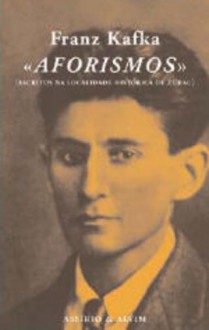
While Amerika was posthumously published from an incomplete manuscript, it still works. Perhaps this is due to the dream-like, fragmented narrative we expect from the author. There are some confusing moments, such as the reappearance of an old friend to whom the reader has never been introduced, but on the whole its holes do not upset the story.
Karl Rossman is a young German who has been sent to America after the family's maid seduces him and becomes pregnant. The logic behind this dismissal is that the family do not wish to have to pay child support. The story begins on an ocean liner.
Karl is naively confident throughout of his ability to find decent work and gradually move upwards in this land of the free. Ironically, both these ideas, while never deserting the protagonist, are proven false again and again. Instead he starts at the top of New York society when he encounters his uncle, then slides further and further down the social helterskelter. Any choices he makes are quickly thwarted, and instead of freedom, Karl is trapped in a sequence of prisons, each more miserable than the last. He is also increasingly aware that others are similarly trapped.
"Even he, strong giant as he was, could not take a step of his own free will, and it was out of the question to think of influencing the crowd..."
The novel is a celebration of absurdity. A satire on the idea of this utopian Capitalist society where everyone has the opportunity to become a millionaire if they work hard enough. Perhaps due to Karl's unwavering optimism, it reminds me of Voltaire's Candide - the best of all possible worlds - a curse rather than a blessing. The characters (excluding the passive and kindhearted Karl) are over the top monstrosities. Our hero is swept along with the narrative, subject to the whims of others.
The final chapter is Karl's redemption, a place where all are accepted, reached via the underground train after you pay the toll (of course) where you are greeted by heralding angels with trumpets, although the noise is a cacophany. The arrivals, seekers, are all given roles despite the fearsome beaurocracy of the various employment offices, then they feast together, before racing for the train and heading to Oklahoma to join the theatre as artists. It is hard not to see a heavenly allegory in all of this.

 Log in with Facebook
Log in with Facebook 









